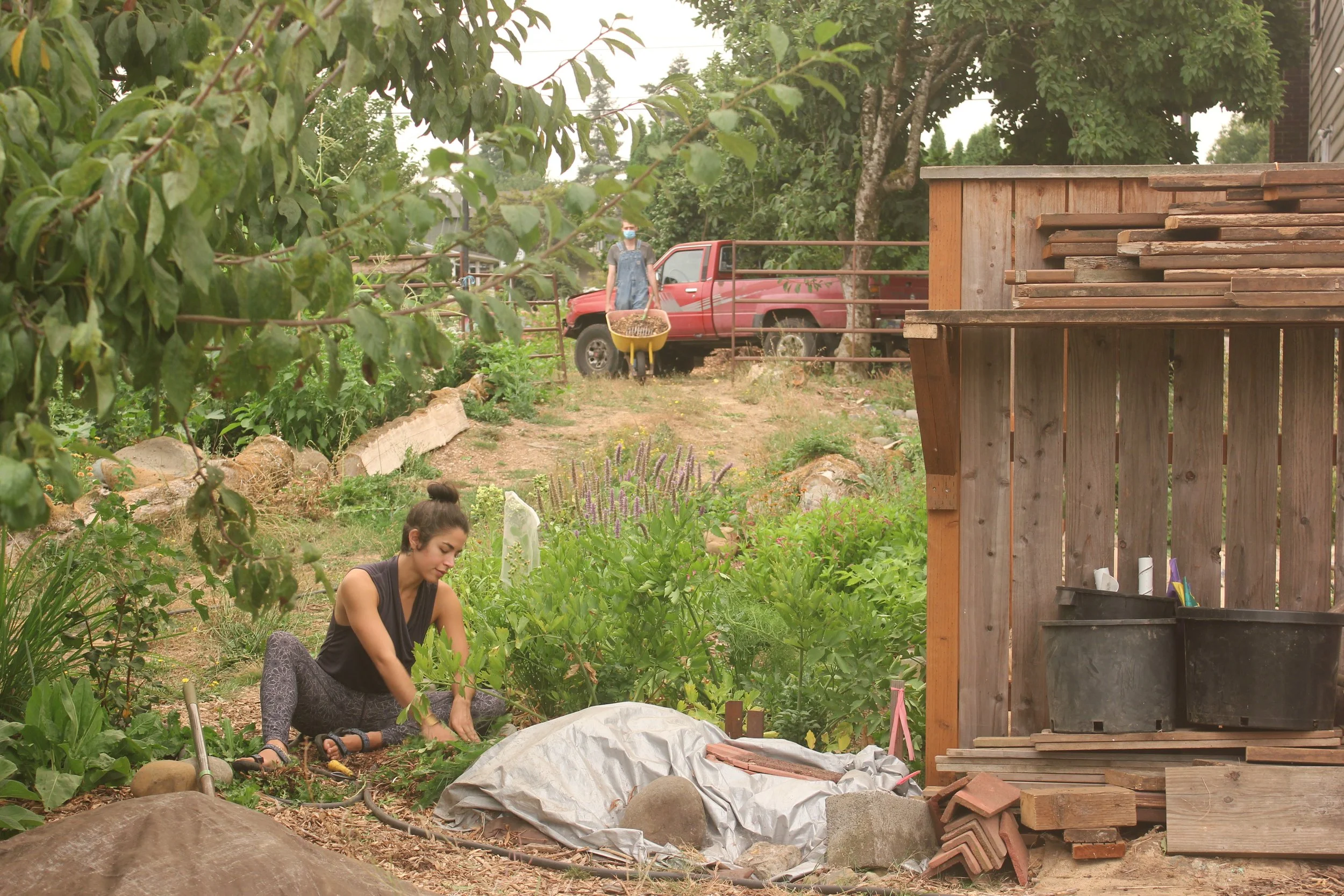OUR STORY
The pandemic threw into sharp relief the fragility of many large-scale supply chains, and seeds were no exception. While gardening has long ranked among the most common hobbies worldwide, the pandemic inspired a new wave of green thumbs to pick up a spade and get serious about growing their own food.
As a passionate botanist and edible landscaper, our founder, Nick Canino, had been concerned about the challenges plaguing conventional food production long before the pandemic-induced shortage. “Conventional” monocultures had already shown themselves to lack resilience to pests, diseases, and climactic instability. This same farming method, by which most of the food crops in the United States are grown, also relies on water-intensive irrigation, petrochemical-derived fertilizers, herbicides and insecticides which are suspected of decimating pollinator populations and harming soil health, and intensive tilling, which erodes invaluable topsoils and can disrupt the lifecycles of helpful insects such as native bees.
While he had long grown hundreds of pounds of food per year in his own yard, he was accustomed to relying on seed purchases from major distributors to prepare for each growing season — for his home garden and his business alike. He knew how to collect, process, and save seeds, but it had never seemed necessary to him to go to the trouble of saving his own. Yet in 2020 even he was unable to obtain the seeds he needed from the companies upon whom he had come to rely.
Proof of Concept
Thus the 2020 seed shortage was the lynchpin that inspired Nick to get serious about growing seeds, educating gardeners to do the same, and form a grassroots network of seed growers that could bolster the food security and resilience of PNW communities.
Step one was proof of concept. Nick and Alana Cornell, our cofounder, first broke ground at RSF in 2020 following the generous donation of the use of a 1/3 acre space. They began by clearing a 70x70 foot stretch of weeds, planting squashes, pollinator-friendly flowers, root vegetables, beans, and herbs. To clear and plant the rest, Nick took time off from his job as an edible landscaper and worked long days with Alana to create what is now Rhythm Seed Farm. Their COVID-19 stimulus checks were spent on plants, fertilizer, nonprofit paperwork filings, irrigation supplies, and tools.
Our Evolution
By fall of 2021, RSF was harvesting millions of seeds from over 50 types of crops, including vegetables, fruits, medicinal plants, and flowers. In 2022, we achieved 501(c)(3) status as a registered federal nonprofit, cultivated over 100 different crops and varietals on-farm, and donated over 3000 seed packets to low-income and BIPOC communities in the Portland Metro Area.
Our work has been generously supported by the community both within and beyond the Cully neighborhood. Donations of money, volunteer hours, and materials have allowed us to convert the entire space to regenerative agriculture, as well as building two greenhouses, five beehives, and a bean palace. Since our founding hundreds of volunteers have contributed countless hours helping us work the land, harvest crops and process seeds.









